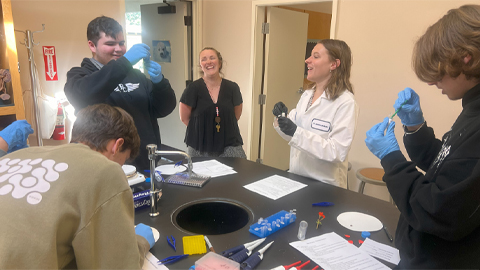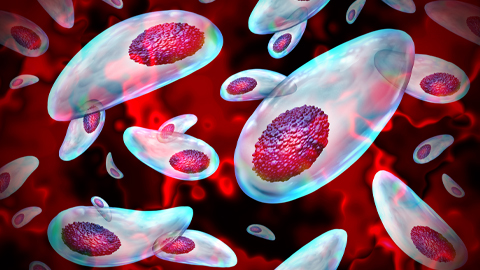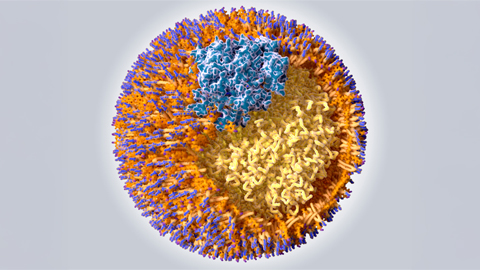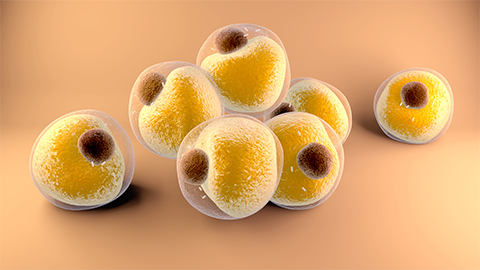Rest and relaxation
For many of us, we are not quite getting the sleep we need. Whether that is because of obligations at work, school, or with your family, the end result is often the same: waking up not feeling quite rested.
As a graduate student, I know this too well. I find the poem below by Edna St. Vincent Millay to represent the life I am currently living.
My candle burns at both ends;
It will not last the night;
But ah, my foes, and oh, my friends—
It gives a lovely light!
— “First Fig” by Edna St. Vincent Millay
However, despite the seemingly attractiveness of “a lovely light,” the reality is that one cannot continue indefinitely or in a healthy manner without quality sleep. In fact, short sleep duration over a continual basis may lead one to a higher risk of developing cardiovascular disease, diabetes, depression, and dementia among other chronic conditions.
So how exactly can we maximize on this daily event to lead healthier lives? While the number of hours will vary depending on your age, health experts recommend that adults get at least 7 hours of sleep every night. But is 7 hours with your eyes closed quality sleep? In a given sleep cycle, your brain will move through different stages of electrical activity that lasts on average 90 minutes. Supplemental and more important than the number of hours you sleep is the quality of that sleep and the time spent in restorative stages.
Stage 1 (N1) is that initial stage of drifting off, and will only last a short period of time. The subsequent Stage 2 (N2) is what follows if undisturbed, and allows the body to slow down and relax. This stage can last between 10 minutes to a half hour, and most of your sleep time is spent here. Arguably the most import sleep stage, Stage 3 (N3), comes next and is know as “deep sleep”. During this stage, your body is able to not only recover from the day but boost your immune system and clear toxins from your brain! Finally, the last stage of the sleep cycle is the rapid eye movement (REM) stage, which has almost wake-like levels of brain activity. In REM sleep, which typically gets longer as the night goes on, we boost our cognitive functions like memory and creative thinking.
The Sleep Foundation provides an extensive list of ways to produce a healthy night’s sleep, which include the creation of a sleep-inducing bedroom and being mindful of pro-sleep habits when we are awake during the day. I encourage you to take a look at them, and consider how you might be able to incorporate some/all of these items to improve your own sleep.
For me, reading a scientific manuscript before bed (and sometimes during the day) generally has a sleep-inducing effect. If you too can relate, or simply would like to learn about the awesome work being published in ASBMB journals related to sleep, take a look at the articles below!

Recent research
Effects of sleep restriction on post-dinner metabolism: Researchers from Penn State and Harvard examined the effects of only 5 hours of sleep per night on after dinner metabolism following a high fat meal. Fifteen healthy men were evaluated for post-prandial lipemia, glycemia, and enteric hormonal and inflammatory responses following lunches and dinners with high calories from fat. The team concluded that sleep restriction impaired post-meal blood lipid levels and decreased satiety. If you need more information to feel satisfied, read on their findings here.
Bridging DAT sleep gap: Researchers from Vienna, Austria attempted to explore the molecular mechanism underlying juvenile dystonia and parkinsonism with regard to mutations in the human dopamine transporter (hDAT) by examining 13 mutants of DAT that are known to cause such disease and their ability to be pharmacologically rescued. The Drosophila models used have evolutionary conservation in respect to dopaminergic neurotransmission, and DAT deficiency results in reduced sleep for Drosophila. Their results identified protein folding deficits from specific DAT mutations that can be rescued with a chaperone compound to potentially prevent disease manifestation in affected children. Take a look for yourself here.
Regulation of molecular clockmakers: A team of researchers from Turkey used computational and biochemical techniques to screen and evaluate small molecules that modulate the regulatory proteins involved in circadian rhythm to improve management of sleep disorders. In many of these sleep disorders and other chronic medical conditions, a decline in the amplitude of the circadian rhythm is observed. The team found a molecule, CDK8, stabilized part of a transcriptional complex that allows for enhanced amplitude of the circadian rhythm. They believe this compound can serve as a tool for a variety of therapeutic areas. Read more about their work here.
Enjoy reading ASBMB Today?
Become a member to receive the print edition four times a year and the digital edition monthly.
Learn moreGet the latest from ASBMB Today
Enter your email address, and we’ll send you a weekly email with recent articles, interviews and more.
Latest in Science
Science highlights or most popular articles

Using DNA barcodes to capture local biodiversity
Undergraduate at the University of California, Santa Barbara, leads citizen science initiative to engage the public in DNA barcoding to catalog local biodiversity, fostering community involvement in science.

Targeting Toxoplasma parasites and their protein accomplices
Researchers identify that a Toxoplasma gondii enzyme drives parasite's survival. Read more about this recent study from the Journal of Lipid Research.

Scavenger protein receptor aids the transport of lipoproteins
Scientists elucidated how two major splice variants of scavenger receptors affect cellular localization in endothelial cells. Read more about this recent study from the Journal of Lipid Research.

Fat cells are a culprit in osteoporosis
Scientists reveal that lipid transfer from bone marrow adipocytes to osteoblasts impairs bone formation by downregulating osteogenic proteins and inducing ferroptosis. Read more about this recent study from the Journal of Lipid Research.

Unraveling oncogenesis: What makes cancer tick?
Learn about the ASBMB 2025 symposium on oncogenic hubs: chromatin regulatory and transcriptional complexes in cancer.

Exploring lipid metabolism: A journey through time and innovation
Recent lipid metabolism research has unveiled critical insights into lipid–protein interactions, offering potential therapeutic targets for metabolic and neurodegenerative diseases. Check out the latest in lipid science at the ASBMB annual meeting.

